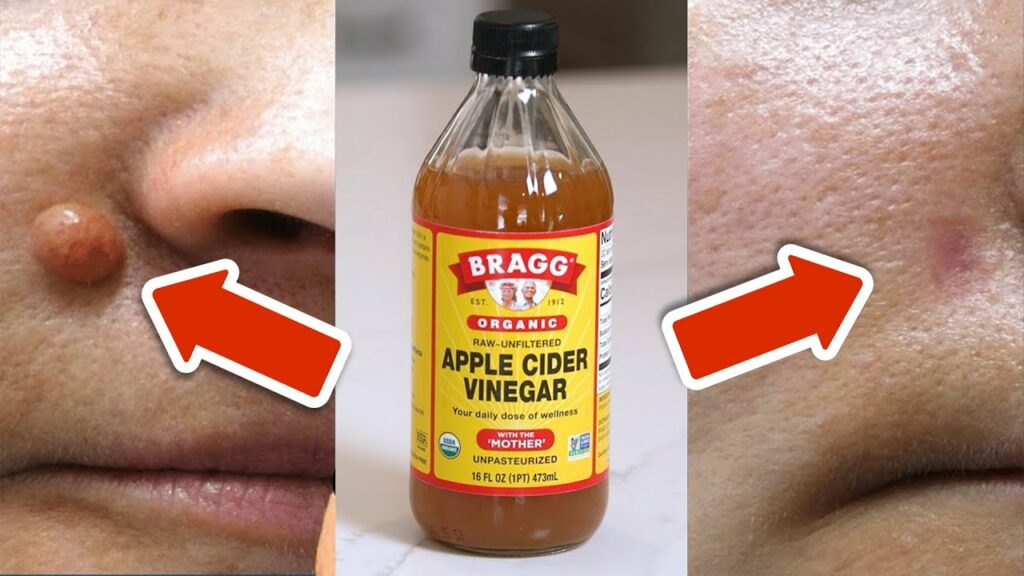Apple cider vinegar (ACV) has long been considered a popular home remedy for a variety of skin concerns, including warts. While many individuals report success using ACV, it is essential to approach this method with care, as scientific evidence supporting its effectiveness remains limited. In this article, we’ll explore how ACV might help with warts, along with precautions you should take.

How Apple Cider Vinegar Might Work on Warts
While there are anecdotal reports of ACV helping with warts, its efficacy is based primarily on its acidic nature:
- Acidity: ACV contains acetic acid, which might help break down the wart’s outer layer over time, leading to its removal.
- Potential Antiviral Effects: Some suggest that the acidic environment could discourage the growth of the virus (HPV) responsible for warts, though this has not been conclusively proven in scientific studies.
- Promotes Healing: By softening the wart, ACV may encourage the regeneration of healthy skin underneath, but results can vary.
Using Apple Cider Vinegar for Warts: A Step-by-Step Guide
While ACV might provide some relief for certain individuals, it’s crucial to proceed with caution. Here’s a common method people use:
What You Need:
- Apple cider vinegar (preferably raw and organic)
- Cotton ball or pad
- Band-aid or medical tape
- Petroleum jelly (optional, for protecting the surrounding skin)
Instructions:
- Clean the Area: Wash the skin around the wart with soap and water, then dry it thoroughly.
- Protect the Skin (Optional): Apply petroleum jelly around the wart to prevent irritation from the vinegar on healthy skin.
- Apply the ACV: Soak a cotton ball in apple cider vinegar, then gently squeeze out the excess.
- Place the Cotton on the Wart: Position the cotton ball over the wart and secure it with a band-aid or medical tape.
- Leave it On: Leave the cotton in place for several hours, typically overnight. If irritation occurs, remove it earlier.
What to Expect:
- After 24 Hours: The wart may darken or shrink slightly, but the process typically takes longer than a day. Continue this routine daily, being mindful of any skin irritation.
- Mild Discomfort: Some individuals may experience stinging or discomfort due to ACV’s acidity. If irritation worsens, discontinue use and consult a healthcare professional.
Precautions:
- Sensitive Skin: ACV can irritate the skin, especially sensitive areas. Consider diluting it with water if you experience discomfort.
- Not a Guaranteed Cure: While some people see improvement, ACV is not a medically proven cure for warts. If warts persist or worsen, seek medical advice.
- Avoid Picking: Resist the urge to pick at the wart to prevent scarring or spreading the virus.
Final Thoughts
Apple cider vinegar is often used as a home remedy for warts, but it’s important to manage expectations. Although some may find it helpful, there is no solid scientific evidence that ACV can remove warts effectively. For persistent or bothersome warts, consulting a dermatologist for proven treatments such as salicylic acid or cryotherapy is recommended.
READ MORE
- Natural Ways to Support Liver Health: Grandma’s Prune Recipe for Gentle Detoxification
- 9 Benefits of Papaya Leaves & How to Process Them as Medicine

